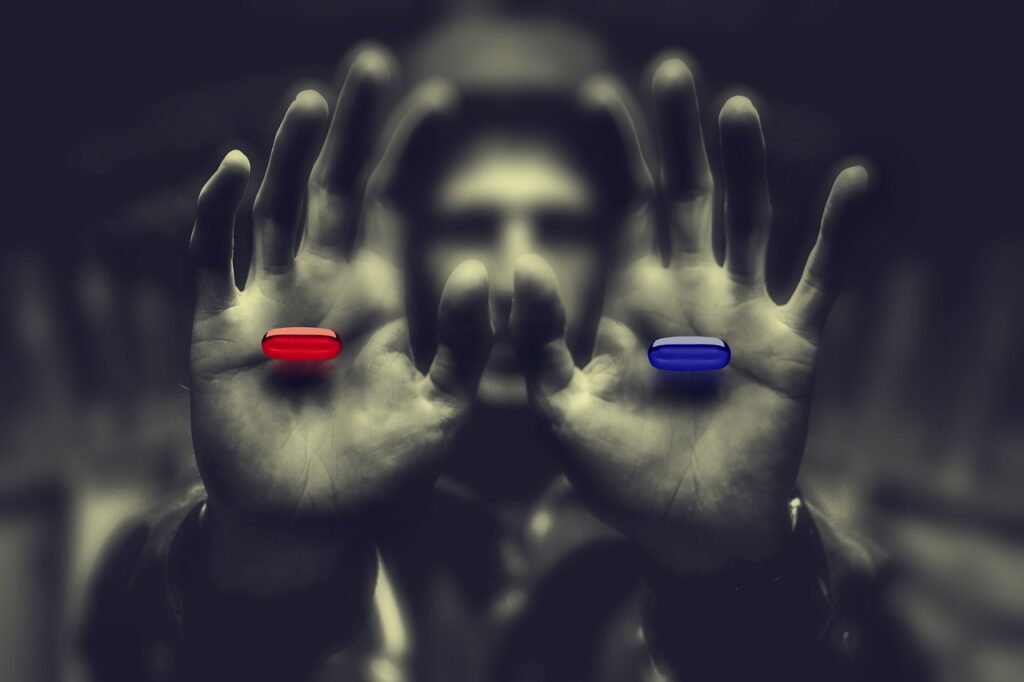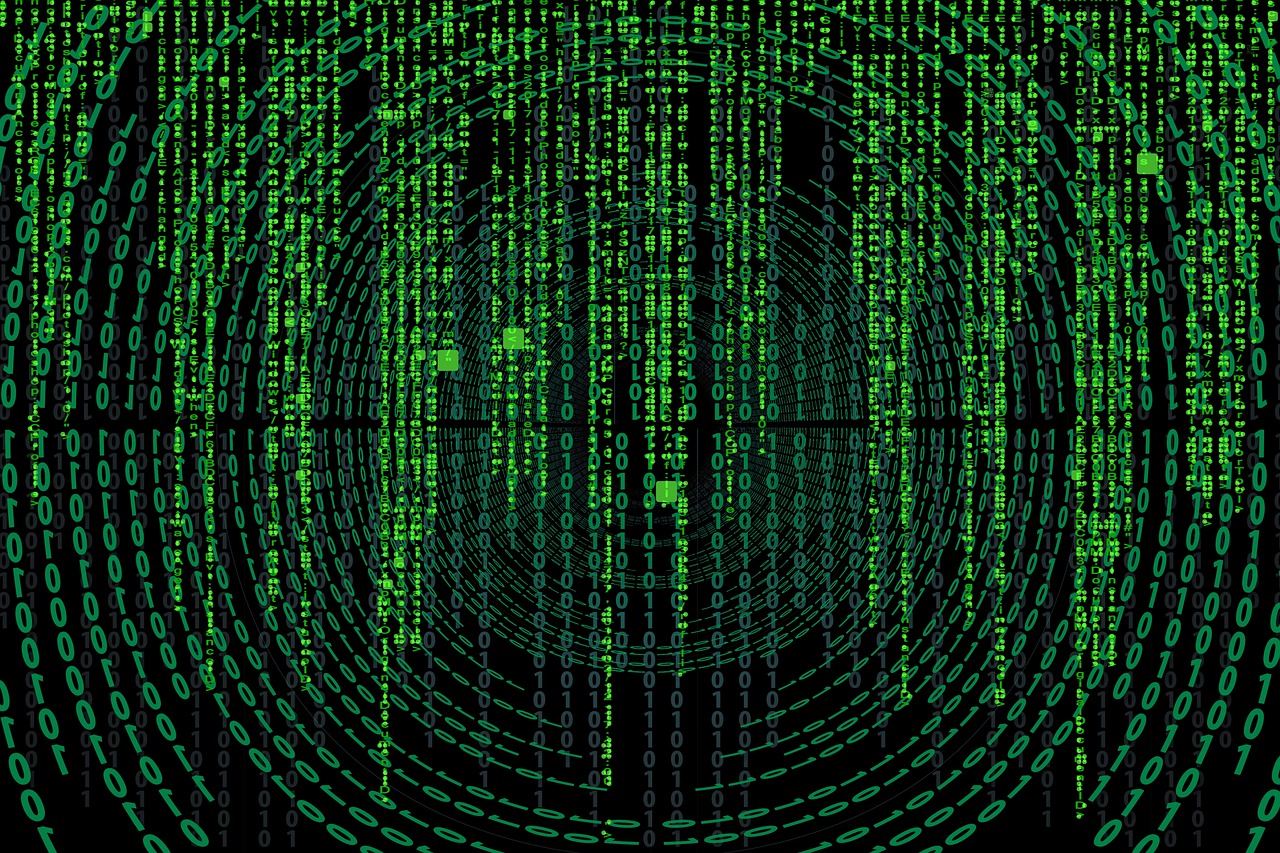More Than a Movie: The Matrix and the Real World
At first glance, The Matrix might just seem like a cool sci-fi action film—with slow-motion fight scenes, futuristic sunglasses, and talk of red pills. But underneath all that, the movie is really about something deeper: how systems shape our reality, and how hard it is to see the truth when we’re trapped inside them.
In The Matrix, people live in a simulation built to control them, while the real world suffers from an ecological collapse. It’s not just fiction—this mirrors our own world, where overconsumption, climate change, and blind loyalty to growth have built a system that feels inescapable. We’re told we need more—faster, cheaper, newer—but that message hides the cost to our planet, our communities, and our sense of meaning.
The Matrix asks: What if the world you know is an illusion? What if you could wake up?
That’s the same question Runarbo is asking—just with everyday products instead of machines. We want to help people see through the greenwashing, question what they really need, and build resilience by choosing better, more durable, more meaningful things. Like Neo, we believe that awareness leads to freedom—and that freedom begins with a choice.
The Red Pill and Seeing the System
In The Matrix, Neo takes the red pill and wakes up to a harsh truth: the world he knew was an illusion, carefully built to keep people under control. What he thought was freedom was actually part of a larger system of exploitation—a simulation powered by human energy while the real world was in ruins.
That story might sound like science fiction, but it hits close to home.
In our world, many people are caught in a different kind of system—modern consumerism, where endless ads, fast fashion, and “must-have” tech convince us to keep buying. Meanwhile, climate change grows worse, and we’re told it’s too complex, too far away, or someone else’s problem.
These systems are designed to keep us comfortable, distracted, and asleep.
The UN Development Programme (UNDP) explored this idea using something called spatial computing—a mix of virtual and augmented reality that lets people actually feel what the future might be like. One project had participants experience air pollution from the year 2050. Another gave people an underwater view of coral reef destruction. The result? People felt the urgency—and became more willing to act.
At Runarbo, we’re not building simulations, but we are offering clarity.
By giving products carbon scores, showing how durable they are, and highlighting their real environmental impact, we help people see beyond the marketing.
Like the red pill, our goal isn’t to make life harder—it’s to show the truth, so we can make better choices in the real world.

Are Humans a Virus?
One of the most famous—and unsettling—moments in The Matrix is when Agent Smith tells Morpheus:
“Humans are a virus.”
He says we spread, consume, and destroy without balance, leaving nothing behind but waste. It’s a harsh comparison—but one that hits uncomfortably close to real life.
Just look around: deforestation, plastic pollution, rising emissions. Our world often reflects unchecked growth and consumption, with systems that reward taking more than we need. From single-use products to fast fashion, we’re encouraged to keep consuming without thinking about the long-term impact.
But here’s the difference: we are not viruses.
We have something viruses don’t—choice.
Unlike Agent Smith’s view, humans can reflect, adapt, and change. We can build systems that restore rather than destroy, choose materials that last, and support products that are actually good for the planet.
At Runarbo, we believe in that potential.
Our platform exists to help people see through the noise of overconsumption and make choices that reflect care, awareness, and responsibility. Because being human doesn’t mean we’re doomed to take—it means we have the power to give back.
Interconnected Systems & Fragile Resilience
In The Matrix: Revolutions, Agent Smith starts multiplying uncontrollably—copying himself over and over until the system is on the brink of collapse. It’s a dramatic moment, but it also mirrors a real-world problem: what happens when a system becomes too uniform, too centralized, and too fragile?
How the Matrix is connected to Resilience
Take farming, for example. Today, nearly all the bananas sold around the world come from just one variety—the Cavendish. If a disease attacks that one type (like an “Agent Smith” fungus), the entire system is at risk. The same goes for our global supply chains. If one port shuts down or one region is hit by disaster, products and food can disappear from shelves in days. These are signs of a system that lacks resilience.
Resilience means building systems that can adapt, recover, and continue even when things go wrong. That means:
-
Supporting diverse farming practices
-
Encouraging local production and repair
-
Choosing products that last rather than quick, disposable fixes
At Runarbo, we highlight products that are durable, low-carbon, and built for the long term—not just trendy, short-lived solutions. Our goal is to help people support stronger, smarter systems that don’t fall apart when one piece breaks.
Because in the real world, resilience isn’t optional. It’s how we move from surviving to thriving.
Sacrifice, Transformation, and the Role of Choice
At the end of The Matrix: Revolutions, Neo makes the ultimate decision—he sacrifices himself to stop Agent Smith. Instead of fighting for control or victory, he chooses to let go, allowing himself to be overtaken so the system can be reset and the world restored. It’s a moment of selflessness, and a reminder that real change often requires personal transformation.
That idea matters in the real world, too—especially when we talk about sustainability.
Living more sustainably isn’t always easy. It means letting go of convenience, status, or short-term gain, and choosing something deeper: long-term health for people and the planet. Sometimes that means buying fewer things, waiting longer, or spending a little more for something that lasts. It’s not flashy—but it’s powerful.
At Runarbo, we’re not here to just rate products—we’re here to encourage values-based choices.
We believe sustainability isn’t just a checklist. It’s a mindset shift. A willingness to choose well, even when it’s not easy.
Just like Neo, we all have a role in shaping the future—and it starts with what we choose to consume, and what we choose to walk away from.
The Matrix and the Instar
In the Liber Primus, there’s a powerful image of the instar—a stage in the life of a cicada, buried underground for years, growing silently. Then, when the time is right, it tunnels to the surface, sheds its skin, and emerges transformed.
This quiet transformation mirrors what we see in The Matrix. In the final moments of Revolutions, Neo doesn’t defeat Agent Smith by fighting harder. He becomes free by letting go—by allowing himself to be absorbed, so the system can break and reset. His power comes not from force, but from understanding, acceptance, and inner change.
That’s what sustainability demands from us—not just better shopping habits, but a new way of thinking.
We must move from being passive consumers to active citizens, from buyers to builders of a more resilient world.
At Runarbo, we believe this transformation starts with awareness. When we start asking What do I really need?, we begin our own instar journey—shedding the habits that no longer serve us and rising into something more conscious, more connected, and more meaningful.
Conclusion
The Matrix isn’t just a dark sci-fi story—it’s both a warning and a guide. It shows us what happens when we live in systems built on illusion, control, and unchecked growth. But it also reminds us that we have a choice. We can wake up. We can change.
Sustainability begins when we stop acting like passive users—when we start questioning the systems around us and the things we’re told to buy. It’s not about rejecting technology or progress. It’s about using those tools wisely, with purpose.
At Runarbo, we’re here to help people unplug—not from the internet, but from mindless consumption. We give you clear, honest information about the things you use, so you can choose better, waste less, and live more intentionally.
Because in the end, it’s not just about buying greener.
It’s about seeing the system—and deciding to live outside of it.

Comments are closed